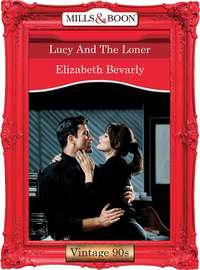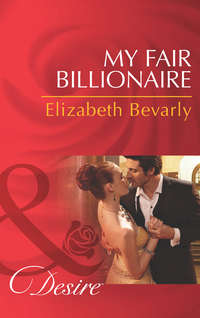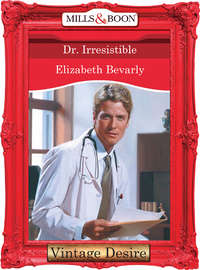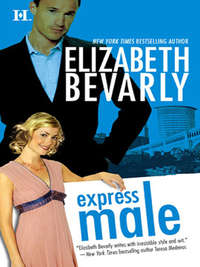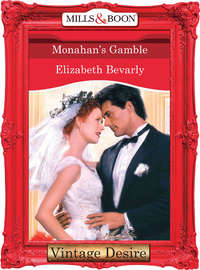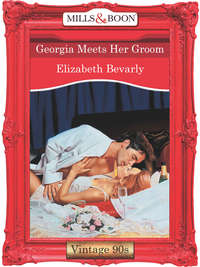
Полная версия
A Ceo In Her Stocking

“A few hours till dinner? You must be home earlier than usual then.”
She meant for the comment to be teasing. Evidently, Grant wasn’t the workaholic she’d assumed he was if he ended his office hours early enough to have some relaxation time before dinner. The realization heartened her. Maybe he did have something in common with his twin.
But Grant didn’t take the comment as teasing. “Yeah, I am, actually,” he said matter-of-factly. “But there wasn’t anything at the office I couldn’t bring home with me, and I thought maybe you—and Hank, too, for that matter—I thought both of you, actually, might … um …”
Somehow, she knew he’d intended to end the sentence with the words need me, but decided at the last minute to say something else instead. Something else that clearly hadn’t yet formed in his brain, though, because no other words came out of his mouth to help the thought along.
But Clara had trouble figuring out what to say next, too, mostly because she was too busy drowning in the deep blue depths of Grant’s eyes to be able to recognize much of anything else.
* * *
A CEO in Her Stocking is part of the Accidental Heirs duet: First they find their fortunes, then they find love
A CEO in Her Stocking
Elizabeth Bevarly

www.millsandboon.co.uk
Table of Contents
Cover
Introduction
Title Page
About the Author
Dedication
Prologue
One
Two
Three
Four
Five
Six
Seven
Eight
Nine
Ten
Eleven
Epilogue
Copyright
ELIZABETH BEVARLY is a New York Times bestselling and award-winning author of more than seventy novels and novellas. Her books have been translated into two dozen languages and published in three dozen countries, and she hopes to someday be as well traveled herself. An honors graduate of the University of Louisville, she has called home places as diverse as San Juan, Puerto Rico, and Haddonfield, New Jersey, but now writes full-time in her native Kentucky, usually on a futon between two cats. She loves reading, movies, British and Canadian TV shows and fiddling with soup recipes. Visit her on the web at www.elizabethbevarly.com, follow her on Twitter or send her a friend request on Facebook.
For David and Eli, the people who made Christmas even better than it already was.
Prologue
Clara Easton was dabbing one final icing berry onto a poinsettia cupcake when the bell over the entrance to Tybee Island’s Bread & Buttercream rang for what she hoped was the last time that day. Not that she wasn’t grateful for every customer, but with Thanksgiving just over and Christmas barely a month away, the bakery had been getting hammered. Not to mention she had to pick up Hank from his sitter in... She glanced at the clock. Yikes! Thirty minutes! Where had the day gone?
With luck, the customer was someone who’d just remembered she needed a dessert for a weekend party, and Hey, whatever you have left in the case is fine—I’ll take it. But the visitor was neither a she nor a customer, Tilly, the salesclerk, told Clara when she came back to the kitchen. It was a man asking for her as Miss Easton. A man in a suit. Carrying a briefcase.
Which was kind of weird, since no one on the island called her anything but Clara, and few if any of her customers were business types—or men, for that matter. Moms and brides pretty much kept Bread & Buttercream in business. Clara was intrigued enough that she didn’t take time to remove her apron before heading into the shop. She did at least tuck a few raven curls under the white kerchief tied on her head pirate-style.
Though the man might have fit right in on the island with his surfer dude good looks, he clearly wasn’t local. His suit was too well cut, his hair too well styled, and he looked completely out of his element amid the white wrought-iron café sets and murals of cartoon cupcakes.
“Hi,” Clara greeted him. “Can I help you?”
“Miss Easton?” he asked.
“Clara,” she automatically corrected him. Miss Easton sounded like a Victorian spinster who ran a boardinghouse for young ladies required to be home by nine o’clock in order to preserve their reputations and their chastity.
“Miss Easton,” the man repeated anyway. “My name is August Fiver. I work for Tarrant, Fiver and Twigg. Attorneys.”
He extended a business card that bore his name and title—Senior Vice-President and Probate Researcher—and an address in New York City. Clara knew probate had something to do with wills, but she didn’t know anyone who had died. She had no family except for her son, and all of her friends were fine.
“Probate researcher?” she asked.
He nodded. “My firm is hired to find heirs who are, for lack of a better term, long-lost relatives of...certain estates.”
The explanation did nothing to clear things up. From what Clara knew about the two people who had exchanged enough bodily fluids to produce her, whatever they might have for her to inherit was either stolen or conned. She would just as soon have them stay long lost.
Her confusion must have shown on her face, because August Fiver told her, “It’s your son, Henry. I’m here on behalf of his paternal grandmother, Francesca Dunbarton.” His lips turned up in just the hint of a smile as he added, “Of the Park Avenue Dunbartons.”
Clara’s mouth dropped open. She’d spent almost a month with Hank’s father four summers ago, when she was working the counter of Bread & Buttercream. Brent had been charming, funny and sweet, with the eyes of a poet, the mouth of a god and a body that could have been roped off in an Italian museum. He’d lived in a tent, played the guitar and read aloud to her by firelight. Then, one morning, he was gone, moving on to whatever came next in his life.
Clara hadn’t really minded that much. She hadn’t loved him, and she’d had plans for her future that didn’t include him. They deliberately hadn’t exchanged last names, so certain had both been that whatever they had was temporary. They’d had fun for a few weeks, but like all good things, it had come to an end.
Except it didn’t quite come to an end. When Clara discovered she was pregnant, she felt obliged to contact Brent and let him know—she’d still had his number in her phone. But her texts to him about her condition went unanswered, as did her messages when she tried to call. Then the number was disconnected. It hadn’t been easy raising a child alone. It still wasn’t. But Clara managed. It was her and Hank against the world. And that was just fine with her.
“I didn’t realize Brent came from money,” she said. “He wasn’t... We weren’t... That summer was...” She gave up trying to describe what defied description. “I’m surprised he even told his mother about Hank. I’m sorry Mrs. Dunbarton passed away without meeting her grandson.”
At this, August Fiver’s expression sobered. “Mrs. Dunbarton is alive and well. I’m afraid it’s Brent who’s passed away.”
For the second time in as many minutes, Clara was struck dumb. She tried to identify how she felt about the news of Brent’s death and was distressed to discover she had no idea how to feel. It had just been so long since she’d seen him.
“As your son is Brent Dunbarton’s sole heir, everything that belonged to him now belongs to Henry. A not insignificant sum.”
Not insignificant, Clara echoed to herself. What did that mean?
“One hundred and forty-two million,” August Fiver said.
Her stomach dropped. Surely she heard that wrong. He must mean one hundred and forty-two million Legos. Or action figures. Or Thomas the Tank Engines. Those things did seem to multiply quickly. Surely he didn’t mean one hundred and forty-two million—
“Dollars,” he said, clearing that up. “Mr. Dunbarton’s estate—your son’s inheritance—is worth in excess of one hundred and forty-two million dollars. And your son’s grandmother is looking forward to meeting you both. So is Brent’s brother, Grant. I’ve been charged by them with bringing you and Henry to New York as soon as possible. Can you be ready to leave tomorrow?”
One
Clara had never traveled north of Knoxville, Tennessee. Everything she knew about New York City she’d learned from television and movies, none of which had prepared her for the reality of buildings dissolving into the sky and streets crammed with people and taxis. Even so, as the big town car carrying her, Hank and Gus—as August Fiver had instructed her to call him—turned onto Park Avenue, Clara was beginning to get an inkling about why New York was a town so nice they named it twice.
Ultimately, it had taken four days to leave Tybee Island. Packing for a toddler took a day in itself, and Clara had orders that weekend for a birthday party, a baby shower, a bunco night and a wedding cake. Then there were all the arrangements she needed to make with Hank’s preschool and covering shifts at Bread & Buttercream. Thank goodness the week after Thanksgiving was slow enough, barely, to manage that before the Christmas season lurched into gear.
Looking out the window now, she could scarcely believe her eyes. The city was just...awesome. She hated to use such a trite word for such a spectacular place, but she couldn’t think of anything more fitting.
“Mama, this is awesome!”
Clara smiled at her son. Okay, maybe that was why she couldn’t think of another word for it. Because awesome was about the only adjective you heard when you had a three-year-old.
Hank strained against the belt of the car seat fastened between her and Gus, struggling to get a glimpse at the passing urban landscape, his fascination as rabid as Clara’s. That was where much of their alikeness ended, however. Although he had her black curls and green eyes, too, his face was a copy of Brent’s. His disposition was also like his father’s. He was easygoing and quick to laugh, endlessly curious about everything and rarely serious.
But Clara was glad Hank was different from her in that respect. She’d been a serious little girl. Things like fun and play had been largely absent from her childhood, and she’d learned early on to never ask questions, because it would only annoy the grown-ups. Such was life for a ward of the state of Georgia, who was shuttled from foster home to children’s home to group home and back again. It was why she was determined that her son’s life would be as free from turbulence as she could make it, and why he would be well-rooted in one place. She just hoped this inheritance from Brent didn’t mess with either of those things.
The car rolled to a halt before a building of a dozen stories whose stone exterior was festooned with gold wreaths for the holidays. Topiaries sparkling with white lights dotted the front walkway leading to beveled lattice windows and French doors, and a red-liveried doorman stood sentry at the front door. It was exactly the kind of place where people would live when they were the owners of an industrial empire that had been in their family for two centuries. The Dunbartons could trace their roots all the way back to England, Gus had told her, where they were distantly related to a duke. Meaning that Hank could potentially become king, if the Black Death returned and took out the several thousand people standing between him and the throne.
The building’s lobby was as sumptuous as its exterior, all polished marble and gleaming mahogany bedecked with evergreen boughs and swaths of red velvet ribbon. And when they took the elevator to the top floor, the doors unfolded on more of the same, since the penthouse foyer was decorated with enough poinsettias to germinate a banana republic. Clara curled her arm around Hank’s shoulders to hug him close, and Gus seemed to sense her anxiety. He smiled reassuringly as he rang the bell. She glanced at Hank to make sure he was presentable, and, inescapably, had to stoop to tie his sneaker.
“Mr. Fiver,” she heard someone greet Gus in a crisp, formal voice.
Butler, she decided as she looped Hank’s laces into a serviceable bow. And wow, was the man good at butlering. He totally sounded like someone who was being paid good money to be cool and detached.
“Mr. Dunbarton,” Gus replied.
Oh. Okay. Not the butler. Brent’s brother. She couldn’t remember what Brent’s voice had sounded like, but she was sure it hadn’t been anywhere near as solemn.
Laces tied, Clara stood to greet their host, and... And took a small step backward, her breath catching in her chest. Because Hank’s father had risen from the grave, looking as somber as death itself.
Or maybe not. On closer consideration, Clara saw little of Brent in his brother’s blue eyes and close-cropped dark hair. Brent’s eyes had laughed with merriment, and his hair had been long enough to dance in the ocean breeze. The salient cheekbones, trenchant jaw and elegant nose were the same, but none were burnished by the caress of salt and sun. And the mouth... Oh, the mouth. Brent’s mouth had been perpetually curled into an irreverent smile, full and beautiful, the kind of mouth that incited a woman to commit mayhem. This version was flat and uncompromising, clearly not prone to smiles. And where Brent had worn nothing but T-shirts and baggy shorts, this man was dressed in charcoal trousers, a crisp white Oxford shirt, maroon necktie and black vest.
So it wasn’t Zombie Brent. It was Brent’s very much alive brother. Brent’s very much alive twin brother. The mirror image of a man who had, one summer, filled Clara with a happiness unlike any she had ever known, and left her with the gift of a son who would ensure that happiness stayed with her forever.
A mirror image of that man who resembled him not at all.
* * *
She wasn’t what he’d expected.
Then again, Grant Dunbarton wasn’t sure exactly what he had expected the mother of Brent’s son to be. His brother had been completely indiscriminate when it came to women. Brent had been indiscriminate about everything. Women, cars, clothes. Friends, family, society. Promises, obligations, responsibilities. You name it, it had held Brent’s attention for as long as it interested him—which was rarely more than a few days. Then he’d moved on to something else. He’d been the poster child for Peter Pan Syndrome, no matter how old he was.
Actually, Grant reconsidered, there had been one way his brother discriminated when it came to women. All of them had been jaw-droppingly beautiful. Clara Easton was no exception. Her hair was a riot of black curls, her mouth was as plump and red as a ripe pepper and her eyes were a green so pale and so clear they seemed to go on forever. She was tall, too, probably pushing six feet in her spike-heeled boots.
She might have looked imperious, but she had her arm roped protectively around her son in a way that indicated she was clearly uncomfortable. Grant supposed that shouldn’t be surprising. It wasn’t every day that a woman who’d been spawned by felons and raised in a string of sketchy environments discovered she’d given birth to the equivalent of American royalty.
Because the Dunbartons of Park Avenue—formerly the Dunbartons of Rittenhouse Square and, before that, the Dunbartons of Beacon Hill—were a family whose name had, since Revolutionary times, been mentioned in the same breath with the Hancocks, Astors, Vanderbilts and Rockefellers. Still, Grant admired her effort to make herself look invulnerable. It was actually kind of cute.
And then there was the boy. He was going to be a problem. Except for his hair and eye color—both a contribution from his mother—he was a replica of his father at that age. Grant hoped his own mother didn’t fall apart again when she saw Henry Easton. She’d been a mess since hearing the news of Brent’s drowning off the coast of Sri Lanka in the spring. It had only been last month that she’d finally pulled herself together enough to go through his things. Then, when she came across the will none of them knew he’d made and discovered he had a child none of them knew he’d fathered, she’d broken down again.
This time, though, there had been joy tempering the grief. There was a remnant of Brent out there in the world somewhere. In Georgia, of all places. Grant had been worried they’d need a paternity test to ensure Henry Easton really was a Dunbarton before they risked dashing his mother’s hopes. But the boy’s undeniable resemblance to Brent—and to Grant, for that matter—made that unnecessary.
“Ms. Easton,” he said as warmly as he could—though, admittedly, warmth wasn’t his strong suit. Brent had pretty much sucked up all the affability genes in the Dunbarton DNA while they were still in the womb. Which was fine, because it left Grant with all the efficiency genes, and those carried a person a lot further in life. “It’s nice to finally meet you. You, too,” he told Henry.
“It’s nice to meet you, too, Mr. Dunbarton,” Clara said, her voice low and husky and as bewitching as the rest of her.
A Southern drawl tinted her words, something Grant would have thought he’d find disagreeable, but instead found...well, kind of hot.
She nudged her son lightly. “Right, Hank? Say hello to Mr. Dunbarton.”
“Hello, Mr. Dunbarton,” the boy echoed dutifully.
Grant did his best to smile. “You don’t have to call me Mr. Dunbarton. You can call me...”
He started to say Uncle Grant, but the words got stuck in his throat. Uncle wasn’t a word that sat well with him. Uncles were affable, easygoing guys who told terrible jokes and pulled nickels from people’s ears. Uncles wore argyle sweaters and brought six-packs to Thanksgiving dinner. Uncles taught their nephews the things fathers wouldn’t, like where to hide their Playboys and how to get fake IDs. No way was Grant suited to the role of uncle.
So he said, “Call me Grant.” When he looked at Clara Easton again, he added, “You, too.”
“Thank you...Grant,” she said. Awkwardly. In her Southern accent. That was kind of hot.
She glanced at her son. But Henry remained silent, only gazing at Grant with his mother’s startlingly green eyes.
“Come in,” he said to all of them.
August Fiver did, but Clara hesitated, clearly not confident of their reception, her arm still draped around her son’s shoulder.
“Please,” Grant tried again, extending his hand toward the interior. “You are welcome here.”
Clara still didn’t look convinced, but the intrepid Henry took an experimental step forward, his gaze never leaving Grant’s. Then he took a second, slightly larger, step. Then a third, something that pulled him free of his mother’s grasp. She looked as if she wanted to yank him back, but remained rooted where she stood.
“My mother is looking forward to meeting you,” Grant said, hoping the mention of another woman might make her feel better. But mention of his mother only made her look more panicked.
“Is something wrong, Ms. Easton?”
By now, Henry had followed Fiver through the door, so the three of them looked expectantly at Clara. She glanced first at her son, then at Grant. For a moment, he honestly thought she would grab her son and bolt. Then, finally, she strode forward. Again, Grant was impressed by her attempt to seem more confident than she was. This time, though, it didn’t seem cute. This time, it seemed kind of...
Hmm. That was weird. For a minute there, he felt toward Clara the way she must have felt when she roped her arm protectively around her son. But why would he feel the need to protect Clara Easton? From what he’d learned about her, she was more than capable of taking care of herself. Not to mention that he barely knew her. And he wouldn’t be getting to know her any better than he had to after this first encounter.
Sure, it was inevitable that their paths would cross in the future, since his mother would want to see as much of Henry as possible, and Clara would be included in that. But Grant didn’t have the time or inclination to be Uncle Grant, even without the Uncle part. He and Brent might have been identical in looks, but they’d been totally different in every other way. Brent was always the charming, cheerful twin, while Grant was the sober, silent one. Brent made friends with abandon. Grant’s few friends barely knew him. Brent treated life like a party. Grant knew it was a chore. Brent loved everyone he ever met. Grant never—
Clara Easton walked past him, leaving in her wake a faint aroma of something spicy and sweet. Cinnamon, he realized. And ginger. She smelled like Christmas morning. Except not the Christmas mornings he knew now, which were only notable because they were a day off from work. She smelled like the Christmas mornings of his childhood, before his father died, when the Dunbartons were happy.
Wow. He hadn’t thought about those Christmas mornings for a long time. Because thinking about mornings like that reminded him of a time and place—reminded him of a person—he would never know again. A time when Grant had been staggeringly contented, and when his future had been filled with the promise of—
Of lots of things that never happened. He didn’t usually like being reminded of mornings like that. For some reason, though, he didn’t mind having Clara Easton and her cinnamon bun–gingerbread scent remind him today. He just wished he was the kind of person who could reciprocate. The kind of person who could be charming and cheerful and made friends with abandon. The kind who treated life like a party and loved everyone he met.
The kind who could draw the eye of a woman like Clara Easton in a way that didn’t make her respond with fear and anxiety.
* * *
As Clara followed Grant Dunbarton deeper into the penthouse, she told herself she was silly to feel so intimidated. It was just an apartment. Just a really big, really sumptuous apartment. On one of the most expensive streets in the world. Filled with art and antiques with a value that probably exceeded the gross national product of some sovereign nations. She knew nothing of dates or styles when it came to antiques, but she was going to go out on a limb and say the decor here was Early Conspicuous Consumption.
Inescapably, she compared it to her two-bedroom, one-bath apartment above the bakery. Her furniture was old, too, but her Midcentury Salvage wasn’t nearly as chic, and her original artwork had been executed by a preschooler. Add to that the general chaos that came with having said preschooler underfoot—and also rocks, puzzle pieces and Cheerios underfoot—and it was pretty clear who had the better living space. She just hoped Hank didn’t notice that, too. But judging by the way he walked with his eyes wide, his neck craned and his mouth open, she was pretty sure he did.
“So...how long have y’all lived here?” she asked Grant. Mostly because no one had said a word since she and Hank and Gus entered, and she was beginning to think none of them would ever speak again.
Grant slowed until she pulled alongside him, which was something of a mixed blessing. On the upside, she could see his face. On the downside, she could see his face. And all she could do was be struck again by how much he resembled Brent. Well, that and also worry about how the resemblance set off little explosions in her midsection that warmed places inside her that really shouldn’t be warming in mixed company.
“Brent and I grew up here,” he said. “The place has been in the family for three generations.”


